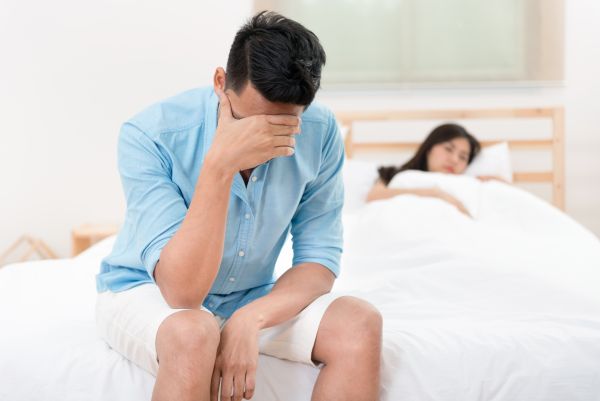Erectile Dysfunction: What You Need to Know

Erectile dysfunction, also commonly known as ED, is the inability to achieve or maintain an erection suitable for sex. It can be devastating to a person’s self-esteem and can interfere with relationships. About 30 million Americans have erectile problems. The good news is that almost all men who seek treatment find some measure of relief. You should talk to your doctor if you are concerned about the condition. Read on to learn about the causes and treatment options for ED.
Erectile dysfunction
The sexual arousal process involves the brain, emotions, blood vessels, muscles, hormones as well as nerves. ED can be due to a problem that affects any of these. Certain medicines, diseases and conditions often cause or lead to erectile difficulties. It is also not uncommon for ED to be caused by emotional and psychological issues like stress and anxiety. Sometimes, this problem can be caused by a combination of factors. For example, a small physical problem that affects or slows a person’s sexual response can eventually cause anxiety about sustaining an erection. The resulting anxiety can either worsen or lead to the problem.
Prevention
Making lifestyle choices and managing any existing health conditions are ideal ways to prevent ED. A person can benefit from working closely with the doctor to manage conditions like heart disease, diabetes or other chronic health conditions. Visiting the doctor regularly for checkups and medical screening tests is always recommended. People should also not smoke, stop or limit alcohol consumption and avoid using illegal drugs. Exercising regularly, taking steps to reduce stress and getting help for mental health concerns can also be effective.
Treatment
Treating ED is very important. Since there are many factors that may cause ED, it is impossible to determine the most ideal treatment option. What may work for one individual may not be helpful for another. Some treatment options include medications like sildenafil (Viagra), lifestyle changes and counseling.
Coping
Regardless of the cause of the condition, erectile dysfunction can lead to emotional or mental stress. A person should not assume that ED is a long-term problem. Occasional ED should not be viewed as a reflection on someone’s health or masculinity. A person should also not just expect to have erection trouble again during the next sexual encounter. This can cause anxiety, which can make the ED worse.
A person’s partner should be involved and reassured that the inability to have or keep an erection is not a sign of diminished sexual interest. Communicating openly about the condition will help. It is also vital for a person not to ignore anxiety, stress or other mental health problems. These issues should be addressed by a mental health provider.
When to seek medical help
Symptoms of ED include difficulty getting or sustaining an erection and reduced sexual desire. If you are worried about your erections or you are experiencing sexual problems like premature ejaculation, talk to your doctor. Seeing your doctor is also recommended if you have any condition that may be linked to ED or have other symptoms along with the condition. Your doctor may diagnose the condition and recommend the treatment option that might be able to treat your condition.
Get more information here: https://omgwellnessmd.com or call Optimal Medical Group at (559) 425-1118
Check out what others are saying about our services on Yelp: Read our Yelp reviews.
Related Posts
Prescription weight loss reviews often sound like a miracle, or a warning, but the real answer is simpler: prescription weight loss medications work best when they're matched to the right patient, titrated safely, and supported by follow-ups and lifestyle changes. These medical weight loss drugs can help eligible adults lose about 5–15% of body weight…
Prescription weight loss maintenance plans are the clinical playbook for staying weight stable after a patient has successfully lost weight with weight loss medications, by matching a sustainable maintenance dose (or taper plan) with nutrition, activity, and follow-up that prevents weight regain. Prescription weight loss maintenance usually means keeping appetite regulated, protecting body composition, and…
Prescription weight loss and high blood pressure often need to be treated together, because reducing body weight can directly lower blood pressure and reduce long-term cardiovascular risk. In clinical trials, modern weight loss medications such as GLP-1 and dual incretin therapies have produced meaningful blood pressure reduction, often several mm Hg in systolic blood pressure,…
Prescription weight loss for men typically means using FDA-approved weight loss medications, prescription drugs intended for chronic weight management, when lifestyle changes alone have not produced enough weight reduction. In most medical offices, eligibility is based on body mass index (BMI) and weight-related health conditions, and treatment is paired with a reduced-calorie diet, activity, and…

















